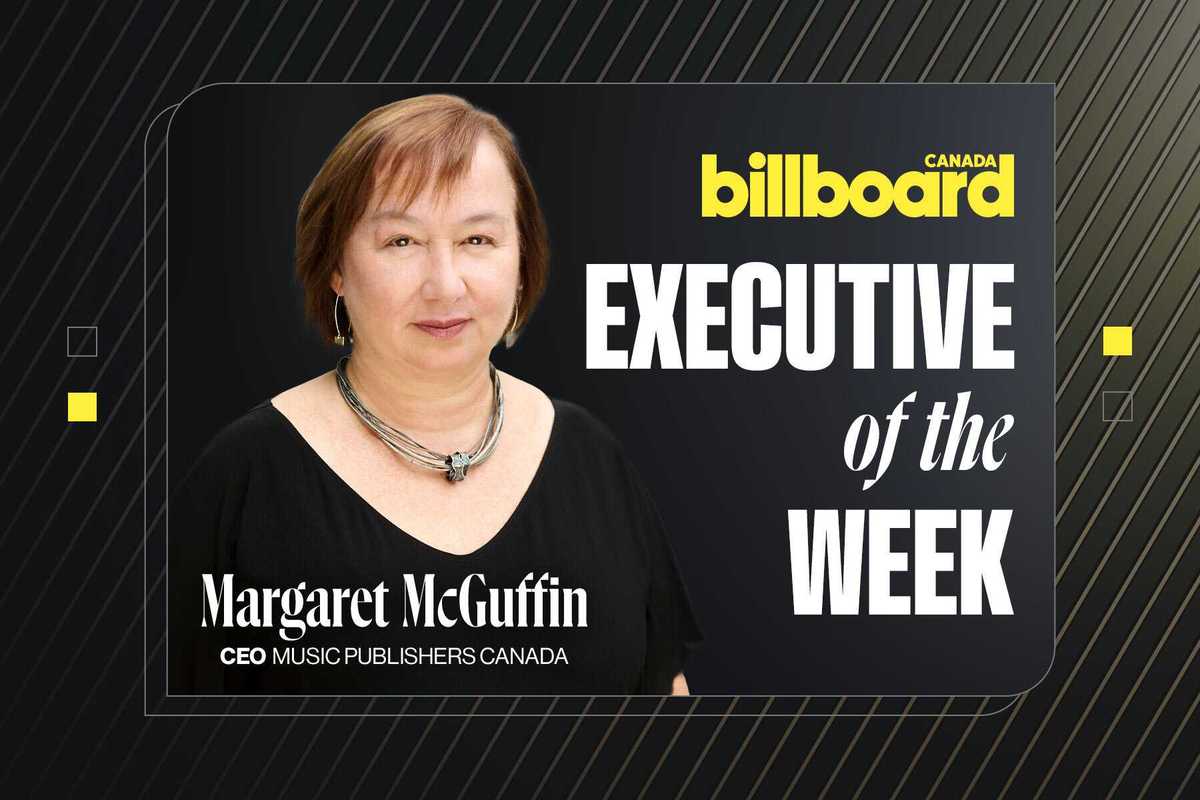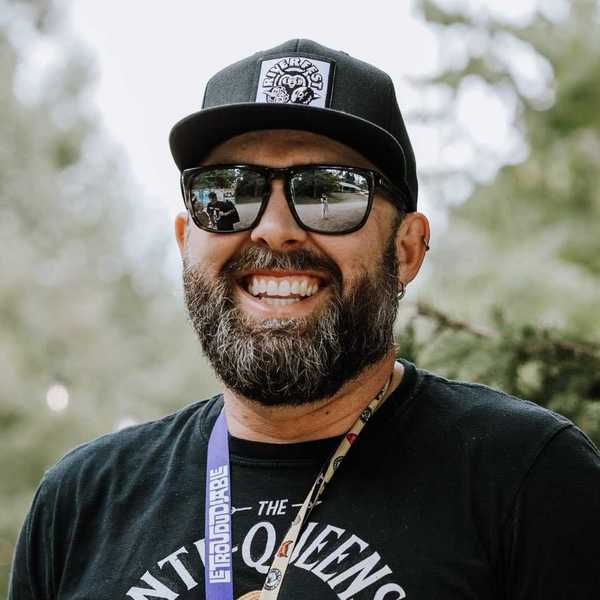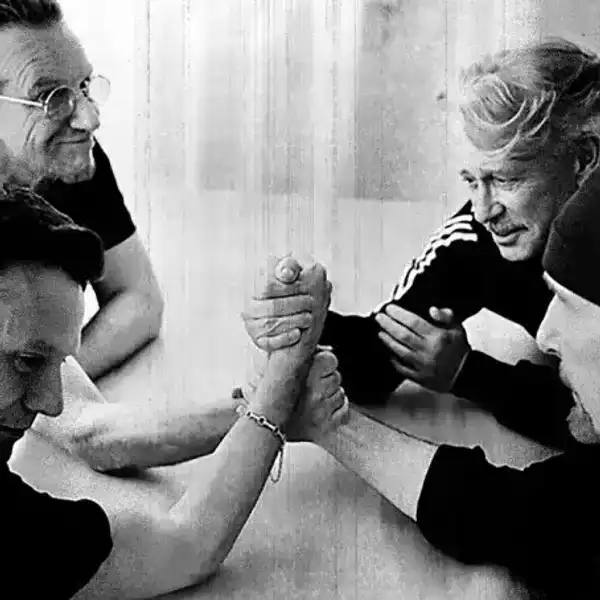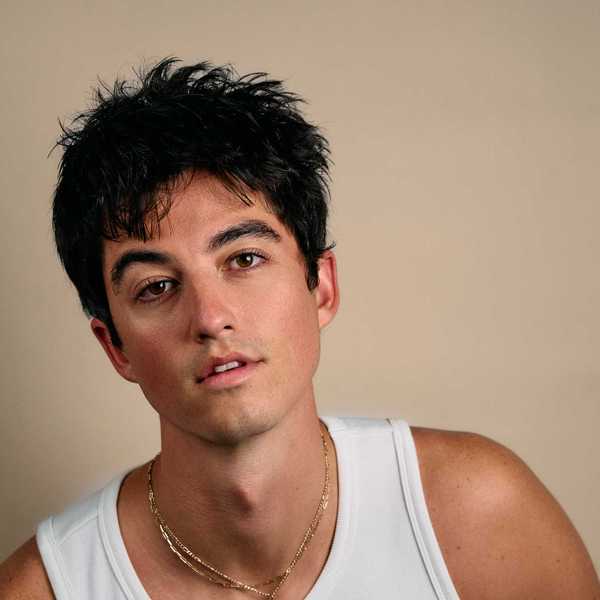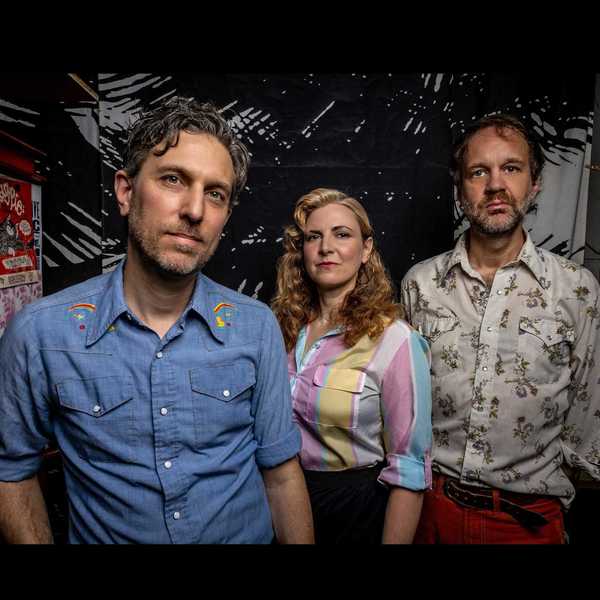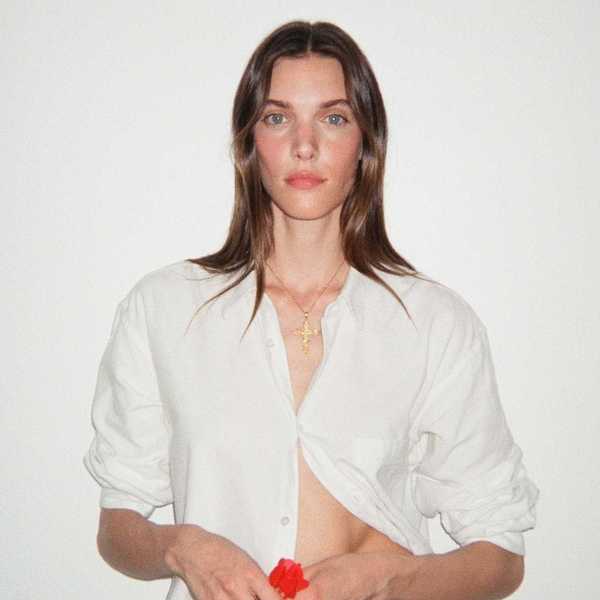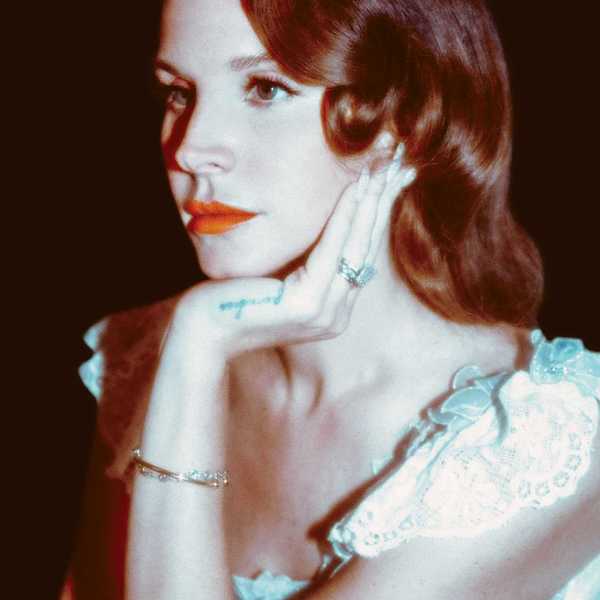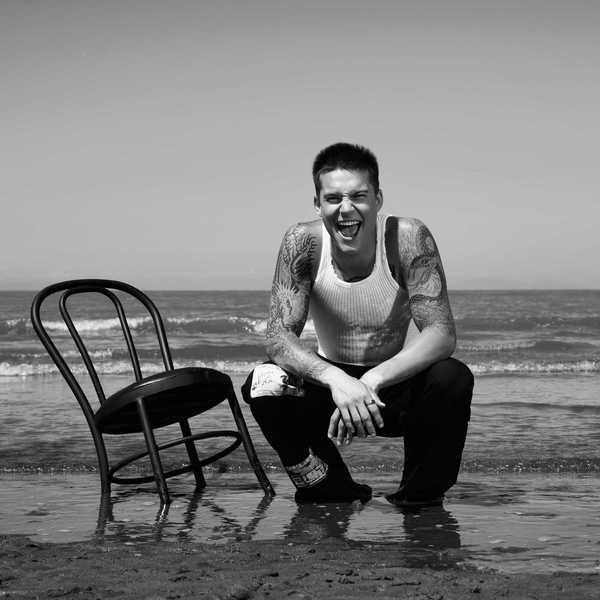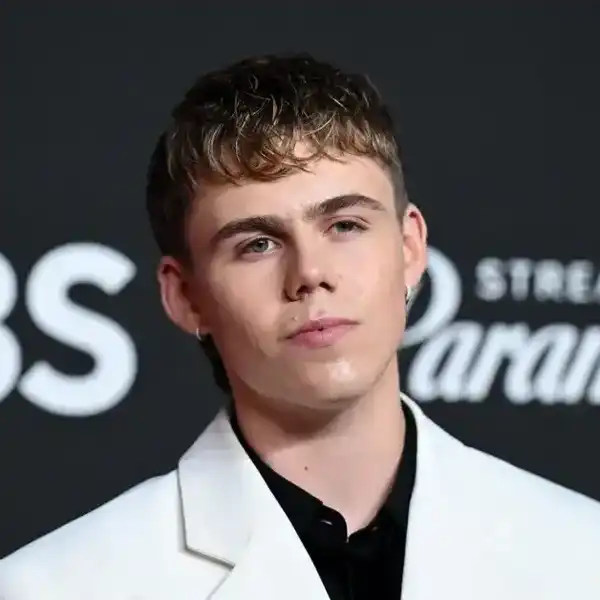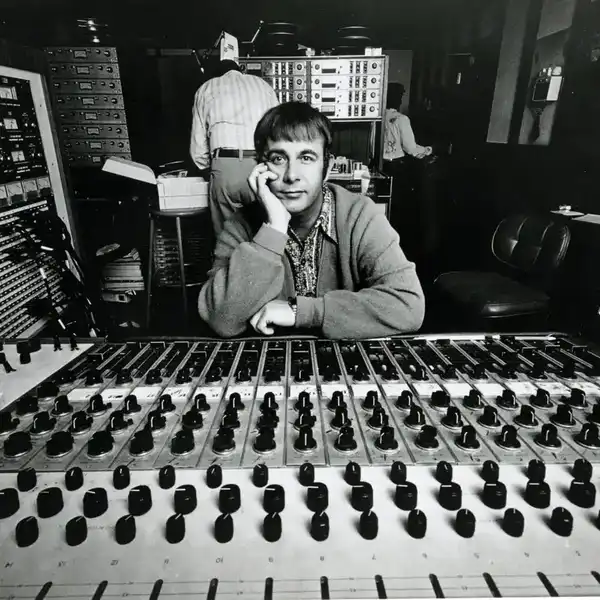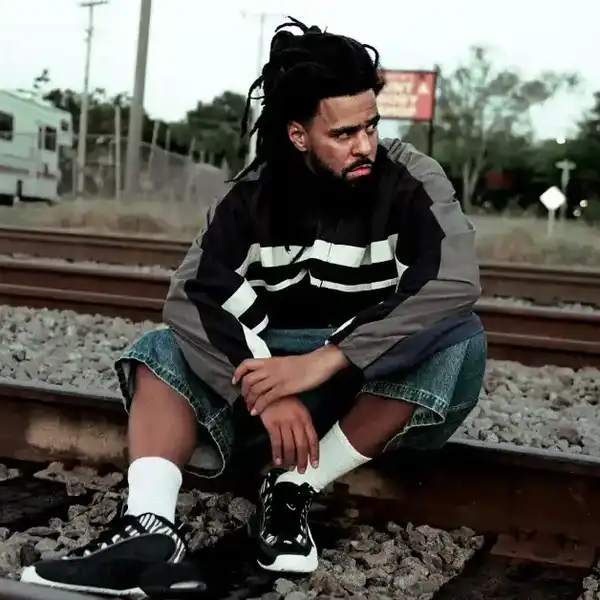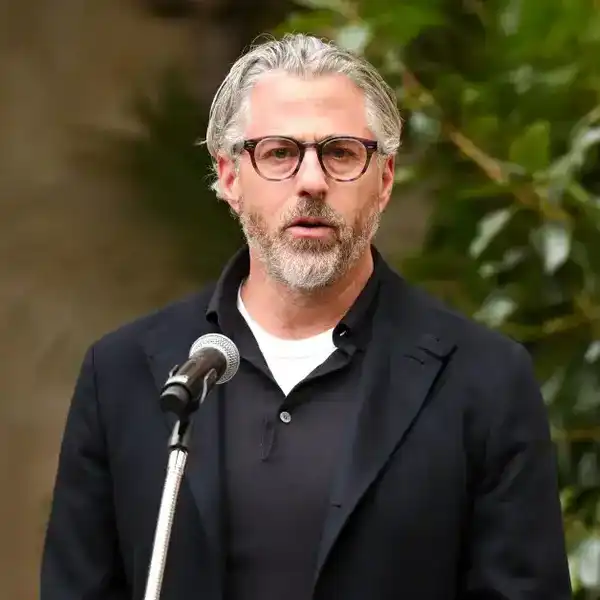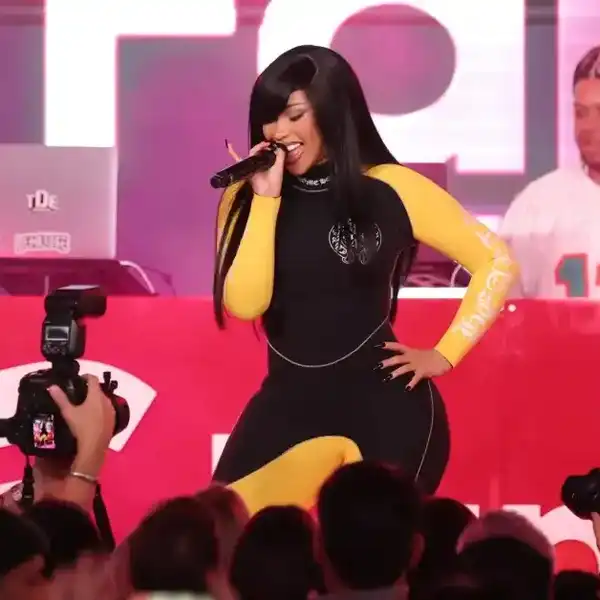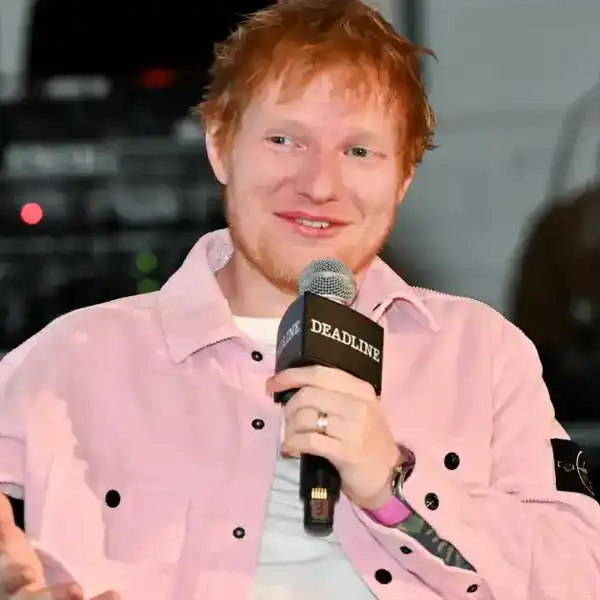Five Questions With… Steven Lambke
The former member of indie rock heroes The Constantines has released a new solo album on You’ve Changed Records, the label he co-founded with Daniel Romano. Here he discusses the recording process for the new album, his favourite new songs, and the challenges of running a label.

By Jason Schneider
With his new solo album Dark Blue, Steven Lambke presents a document of disruption, a lament for environmental ruin, and stubborn evidence of endurance and transcendence. It is a product of this time, a collaborative process between poet and muse, translated through guitar and voice and drum.
The release of Dark Blue marks the 10th anniversary of You’ve Changed Records, the label Lambke co-founded with Daniel Romano. Along with releasing albums by the pair and their side projects, the label has also built a reputation through acclaimed work by The Weather Station, Partner, Nap Eyes and others.
Born in Cambridge, Ontario, Lambke attended university in nearby Guelph where he co-founded the Constantines in 1999. He launched a solo career in 2006 under the name Baby Eagle, and since then has explored the paradoxical loud and quiet aspects of his songwriting style on various projects. On top of running the label, Lambke has also been the creative director of Sappyfest in Sackville, New Brunswick since 2017 and splits his time between Toronto and the east coast.
Dark Blue is out March 29, and Lambke launches it with a handful of Ontario shows in April, including April 12 at Toronto’s Burdock Music Hall. For more info go to stevenlambke.com.
What makes Dark Blue different from your past work?
Well, one hesitates to burden a new work with the weight of the past. My previous album Days Of Heaven found a small group of very enthusiastic and even dedicated listeners and also received some very positive public reviews. I'm deeply grateful for those receptive ears. But in no way did that work penetrate the general consciousness, no matter how tightly constricted or humbly that might be defined. Which is to say that to contrast Dark Blue with an album that so few might be familiar with doesn't seem like the best of starting points in introducing a new album about which I am newly excited and proud and which I think has something unique to say.
I would say there is a certain looseness to Dark Blue in both its composition and execution. The songs were written with an inclusive spirit in terms of idea, image and tone. This inclusiveness was prioritized over a drive towards a single meaning. Simply said, I edited less and trusted my instinct more when judging the coherence or sense of a song. This has a definite analogy in the performance. I recorded with Daniel Romano and Dave Nardi. We worked quickly, performing the songs live, together, in a living room. Working with Daniel requires one to be ready to work quickly. He's an incredibly thoughtful artist and trusts his instincts. I think we met in that zone on this project and it was a thrill. There's craft involved, and experience too. But one tries their best to heft all that into the energy of the moment.
What songs on the record are you most proud of and why?
A few of the songs were written incredibly quickly, in a single sitting: "Fireworks," "Cut Flowers," "All My Days Are Light And Gold." It's hard to feel proud of such things because they happen so unexpectedly that it feels somewhat like an accident. "Fireworks" was written one summer afternoon and I made a recording of it on the spot. I thought that was more or less its final presentation. It was introduced into these sessions as an afterthought. It was the last song we recorded, and it became the first song on the record and the first "single."
"Both Of Me" appeared out of nowhere, slipping into existence immediately in the wake of another song that was written with much more intent and conscious purpose. I think it may be the most I've ever been surprised by a song. I'm sitting at a window overlooking the train station and watching myself getting on a train. I know the place exactly, and was in the process of describing it when this unexpected narrative appeared in front of me on the page. I'm appreciative and excited by these things, though wouldn't identify that feeling with being much similar to pride.
Some of the songs were wrestled into final form with much more effort and there is a beautiful relief when something clicks into place and starts working. The song "Dark Blue" emerged slowly, over months, verse by verse, acquiring a chorus and bridge through patience. "Back To Back" was sweated over with pen and scraps of paper and long tormented walks, but in the end, the lyric has a quick ease that I'm grateful to have found.
How would you describe your artistic evolution so far?
Given a choice, I don't think that I would! Evolution is so directional. We experience our lives in a linear way, a day follows a day follows a day, and we start young, and we become old. But we've lived that against a cyclical background of regular seasons, of the ongoing repopulation of the natural world. But those cycles are breaking down in this era of extinction and catastrophic climate change. I'm just trying to make sense of that, the same as everyone.
I think a lot about what a song is. A song is not a thing, in the physical sense. A song can be radically different each time it is performed and still recognizable as a song. The song in the moment of its performance has existence; otherwise it exists as a prescription or an idea for a reenactment. In this sense it requires repetition. The only thing I can think of that has a similar character are our human rituals. So then as a writer of songs, one becomes a creator of rituals—a very bold claim! Except that the ritual might only be observed by one, by the lonesome songwriter standing in the living room, softly singing, staring out the window.
This is also the 10th anniversary of You've Changed. What have been the biggest challenges in getting this far, and where do you see things going in the future for the label?
It's taken a lot of work and a lot of sacrifice and a lot of stubborn effort to get to 10 years, as it took to get to one year, as it took to get to five. Money is always hard; the question of how to fund projects is persistent. Doubt is equally persistent and as stubbornly persuasive. I live my artistic life without any apparatus or shelter against failure. There is no one to hide the numbers from me.
Every project is a re-evaluation in the moment. The context is continually shifting, both within the small community of artists I've worked with and in the wider culture. Artists have outgrown us, grown more, and returned with greater insight into their priorities and dreams. Every record might be the last one, and every record might, looking back, be a significant new beginning. The whole form and format of people's interaction with music has changed drastically in 10 years and continues to change.
If you could fix anything about the music industry, what would it be?
I've been the Creative Director of Sappyfest for the last few years and am currently booking our 14th annual festival. I wish the airlines would donate tickets for us to bring in performers rather than raising the prices because our festival happens on a long weekend in the summer.

